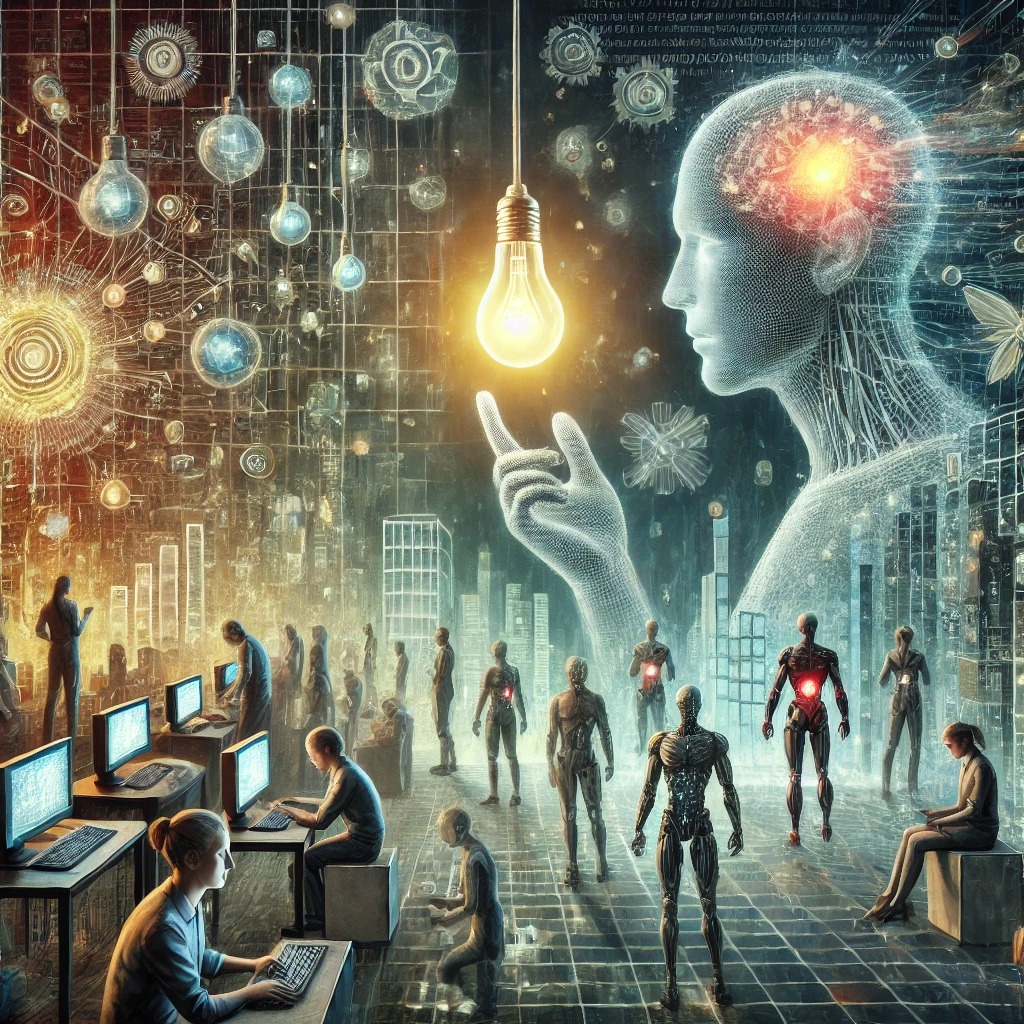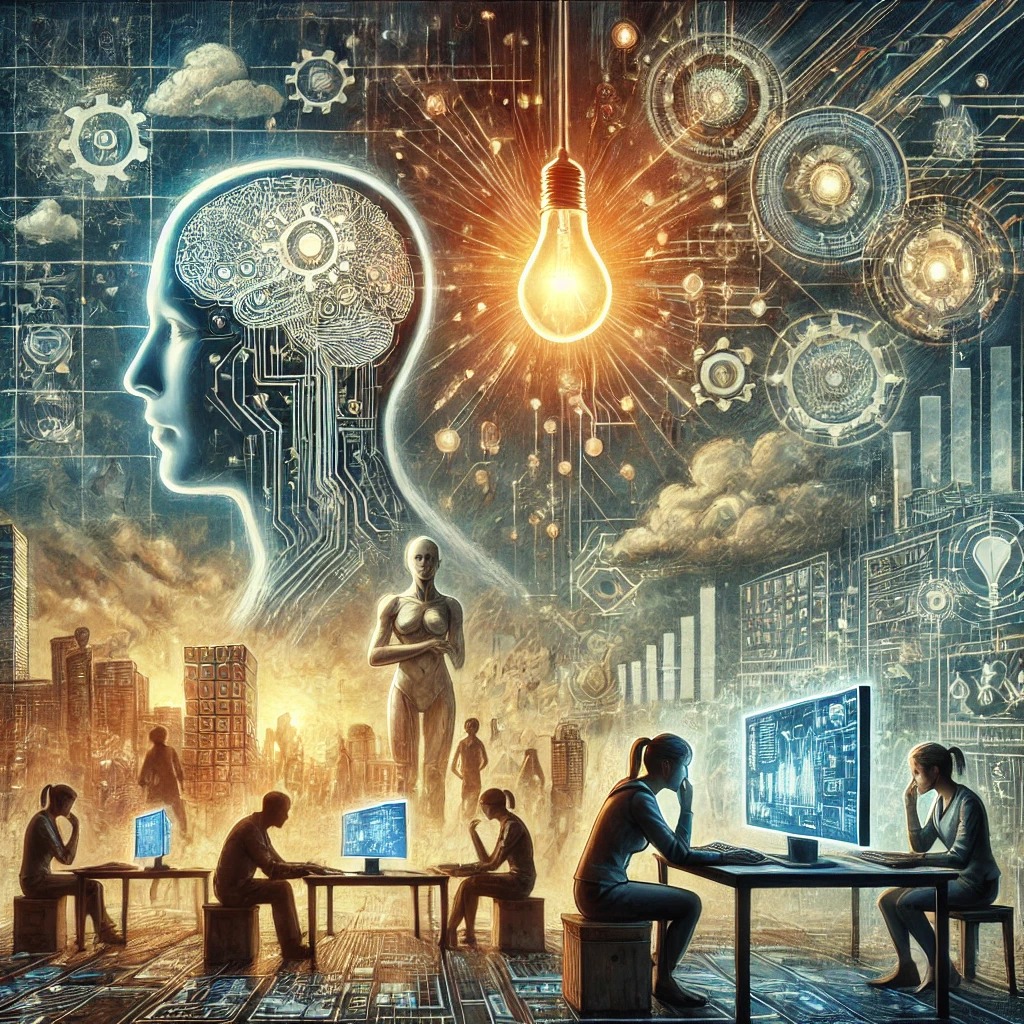By P Mohan Chandran
Is Technology Making You Smarter or Just More Dependent?
Has the rise of Generative AI (GenAI) come at the cost of human critical thinking? Are you delegating your intellectual rigor to algorithms, unknowingly dulling your ability to analyze, evaluate, and create? As AI systems increasingly shape your decisions, the fundamental question emerges: Is AI a tool for empowerment or an instrument of cognitive decay?

The integration of GenAI into knowledge work has triggered a profound transformation. While its ability to generate insights, summarize complex data, and automate routine tasks is undeniable, there are growing concerns about the unintended consequences. Studies indicate that the overreliance on AI for cognitive tasks may erode independent thinking, diminish intellectual effort, and reshape how humans engage with problem-solving.
This article delves deep into the impact of GenAI on critical thinking, drawing from empirical research and real-world examples to explore whether AI is making you intellectually passive or more capable than ever before.
The Cognitive Trade-Off: Efficiency vs. Deep Thinking
Generative AI enhances productivity by reducing the effort required for tasks such as information retrieval, content creation, and decision-making. However, its ease of use comes at a cost — users are increasingly shifting from deep engagement to surface-level oversight.
From Knowledge to Verification
Previously, knowledge workers engaged in rigorous research, cross-referencing sources, and synthesizing insights. With GenAI, information is instantly available, but this convenience has shifted the focus from knowledge-building to verification. Instead of deeply analyzing subjects, users now merely confirm whether AI-generated responses align with their expectations.
Example:
Consider legal professionals who rely on AI-powered legal research tools. Instead of manually sifting through case laws and analyzing precedents, they now receive pre-summarized judgments. While this improves efficiency, it raises concerns: Are lawyers still developing the analytical depth required to interpret laws, or are they outsourcing their expertise to algorithms?
The Diminishing Role of Independent Judgment
GenAI’s role in decision-making introduces another challenge — users tend to accept AI-generated recommendations without question. Higher trust in AI often correlates with reduced critical scrutiny, leading to cognitive laziness.
Example:
Financial analysts use AI models for investment predictions, but a growing number simply follow AI-driven stock recommendations without assessing underlying economic indicators. This passive adoption creates a dangerous dependency where professionals lose their ability to challenge flawed AI outputs.
Automation-Induced Amnesia: Losing the Ability to Think?
One of the most striking findings from recent research is the phenomenon of “cognitive offloading.” Just as GPS navigation has diminished our ability to remember routes, GenAI is reducing the effort required for problem-solving.
Example:
Students increasingly rely on AI to draft essays, structure arguments, and generate reports. While this fosters creativity, it also raises a critical question — are they truly learning, or are they simply curating AI-generated content? If GenAI provides ready-made answers, what happens to the process of inquiry and deep exploration?

GenAI’s Dual Impact on Critical Thinking
While the concerns are valid, GenAI also offers opportunities to refine and enhance human cognition — provided it is used strategically.
Enhancing Critical Thinking Through AI-Generated Challenges
Rather than replacing thought processes, GenAI can be leveraged as a tool for cognitive enhancement. AI-driven simulations, debate models, and scenario-based learning can help users refine their analytical skills.
Example:
Medical students use AI-driven diagnostic simulations to test hypotheses, analyze patient histories, and challenge their own assumptions. Instead of replacing critical thinking, AI acts as a cognitive sparring partner, refining decision-making abilities.
AI as a Reflective Partner, Not a Decision-Maker
A key strategy to mitigate overreliance on AI is to use it as a reflective partner rather than a decision-maker. Instead of passively accepting AI-generated outputs, users must actively engage with AI responses, question biases, and integrate human judgment.
Example:
In journalism, AI-assisted writing tools can draft reports, but investigative journalists must verify claims, challenge assumptions, and inject human perspectives to ensure accuracy and depth.
The Road Ahead: Balancing AI & Human Thought
The challenge is not whether AI is good or bad for critical thinking, but how it is used. A well-designed AI-human partnership can elevate cognitive abilities, while blind reliance can lead to intellectual stagnation.
A Framework for Responsible AI Use in Knowledge Work
- Critical Oversight: AI-generated content must be cross-examined against independent sources.
- Human-AI Collaboration: AI should serve as a tool for augmentation, not substitution.
- Cognitive Training: Schools and workplaces must prioritize critical thinking education alongside AI literacy.
- Ethical AI Development: AI systems should be designed to prompt users to think rather than provide passive answers.
Final Thoughts: Is AI Helping You Think, or Is It Thinking for You?
As AI continues to reshape industries, the most crucial question remains — will humans continue to lead intellectual progress, or will we become passive consumers of machine-generated intelligence?
Will future generations cultivate the ability to think deeply, question assumptions, and solve complex problems, or will they simply outsource these cognitive functions to AI?
The answer lies in how we choose to integrate AI into our daily lives. If used wisely, GenAI can be a catalyst for intellectual empowerment. If misused, it risks turning you into spectators in the very world you once shaped.
The future of human cognition is not just about AI — it’s about how you, as a society, define the role of thinking in an age of machines.
So, what will you choose?
© 2025. P Mohan Chandran. All Rights Reserved




